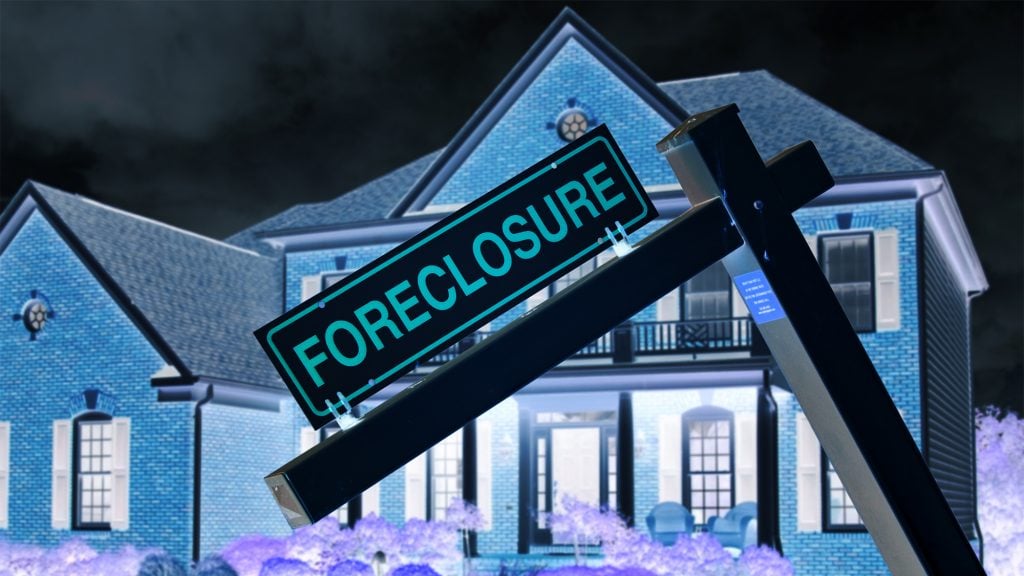Research shows that so-called “zombie foreclosures” are emerging in much bigger numbers again as distressed homeowners abandon their properties in the belief that they will soon be repossessed.

Around 1.4 million residential homes in the U.S. stood vacant in the second quarter, amounting to 1.4% of all homes, ATTOM Data Solutions said in a new report last week. That’s up almost 28% from the first quarter, and suggests that more distressed and vacant homes might end up on the market soon.
Zombie foreclosures refer to homes left vacant by homeowners who have fallen behind on their payments and believe, incorrectly, that they have to move out immediately when they receive a foreclosure notice. They don’t realize that they still own the home until the foreclosure process is actually completed, and that can take some time.
For many reasons, a lot of lenders don’t actually get around to completing foreclosures. As a result, those abandoned homes might sit vacant for a long time and fall into disrepair. That’s a problem because it not only has implications for safety, but can also lower the value of other homes in the community.
ATTOM Data Solutions said the overall number of zombie foreclosures is still down 13% compared to one year ago. However, its the rapid pace of growth that has made it take notice, all the more so since it has occurred at a time when the government has issued a federal moratorium on foreclosures due to the COVID-19 pandemic. That moratorium, which began last year and will continue until the end of June, prevents lenders from going after delinquent homeowners with government-backed mortgages.
“The latest numbers show a spike in zombie properties during the second quarter that stands out compared to recent times, especially given the moratorium,” said ATTOM’s chief product officer Todd Teta. “It may simply be due to lenders foreclosing on homes that were already abandoned. We were watching that closely to see what it means and whether it’s the start of a new trend.”
Still, ATTOM points out that zombie foreclosures, for now, still only represent a small fraction of the U.S. housing market overall. That is a testimony to the housing market's overall strength, it said.
“You can still walk around most neighborhoods around the country and literally not find a single empty house going through the takeover process, and that remains very good news for current homeowners, as well as potential homeowners,” Teta said.
The largest increases in zombie foreclosures in the last three months were seen in Maryland, Iowa, North Carolina, South Carolina and Ohio. But New York still has the most zombie foreclosures overall, followed by Ohio and then Florida.
Rick Sharga, executive vice president at RealtyTrac, an ATTOM Data Solution company, blamed the rising zombie foreclosures on government officials. He said that they were trying to prevent unnecessary defaults by delaying foreclosure proceedings, and that the delays often last so long that the borrowers just abandon the home before the foreclosure is completed.
“There are probably two things behind the increase in zombie foreclosures: First, the fact that most foreclosure starts today are on vacant and abandoned properties; and second, there were also almost 250,000 loans in foreclosure prior to the pandemic and they’ve been in limbo for over 14 months,” Sharga said. “It’s very likely that some of the borrowers in those properties have moved on, but lenders have been prohibited from beginning foreclosure proceedings on those loans.”